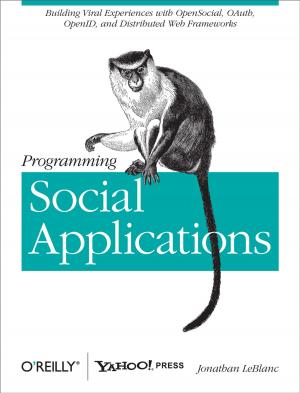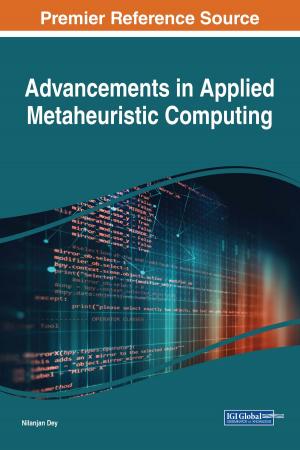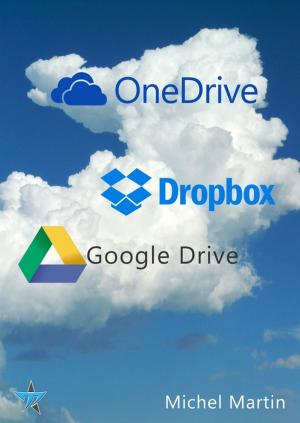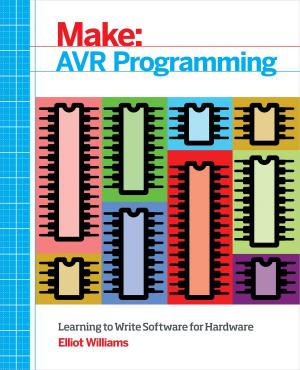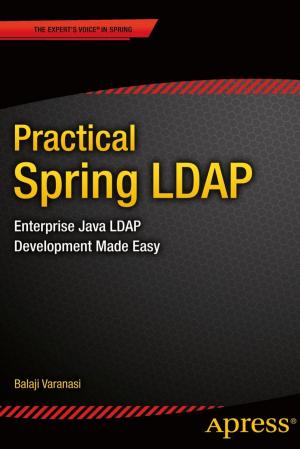Bottleneck: Our human interface with reality. The disturbing and exciting implications of its true nature.
Nonfiction, Science & Nature, Science, Computers| Author: | Richard Epworth | ISBN: | 9780992672829 |
| Publisher: | Richard Epworth | Publication: | March 19, 2015 |
| Imprint: | Smashwords Edition | Language: | English |
| Author: | Richard Epworth |
| ISBN: | 9780992672829 |
| Publisher: | Richard Epworth |
| Publication: | March 19, 2015 |
| Imprint: | Smashwords Edition |
| Language: | English |
Bottleneck is about “the Narrowness of Now”, the shockingly low information rate of human learning, our learning bottleneck. It is what we discover when we dare to apply the science of information to the psychology of perception and learning.
The process of learning is intrinsic to every human life yet we understand surprisingly little about it. Bottleneck is aimed at anyone interested in the science behind our everyday human experience and how we learn about the world around us. It reveals insights that will forever change your perspective on the world and people around you.
Though the world we inhabit and experience through our senses appears incredibly detailed and rich in information, there is no scientific evidence that we are able to absorb more than a tiny trickle of fresh information from the reality that surrounds us. It had been assumed that we absorb vast quantities of information through all our senses subconsciously, a comfortable and reassuring way of interpreting human perception, yet there is no quantifiable evidence that we can learn truly novel information faster than a few tens of bits per second absolute maximum.
Bottleneck reveals the evidence for our learning “bottleneck”, evidence from performances by the world’s finest mental athletes, from the intrinsic information capacity of language, and from the limits of rapid physical skills. It also explains that we can recognise familiar things much faster, at Megabit rates.
Here is the evidence that most of the world we experience is an internal mental construct based on our lifelong past experiences, that our mind creates a plausible narrative to make sense of what little we do actually sense. This has profound implications for interactions between humans, and between humans and technology. Here too is a scientific insight into the process of prejudice, inviting us to look beyond our cosy moral judgements.
The question of how fast we can learn about the world is crucial. The success of our species depends entirely on what we learn throughout our life. When we are born, we arrive with the small amount of information essential to our physical survival, but the majority of information about the world we find ourselves in must be absorbed subsequently. As with all intelligent creatures, we must learn how to interpret the raw sensations from our senses as an experience of the world out there. Civilised humans learn much more, through the gradual process of education which may span decades.
Our learning rate appears to be constrained by the speed at which we can integrate what we sense into our internal model of the world. There is evidence for this from the fact that some apes outperform the best memory athletes when rapidly recognising numbers. What to a chimp is merely an arbitrary symbol, to an educated human is a number within a sequence, a much broader context.
Finally Bottleneck also peers into the future, exploring how our learning bottleneck is constrained by our biology, and imposes a fundamental limit to humanity’s ability to conceive ever greater ideas. In the rapidly increasing capacity global information network, we are the bottlenecks.
Bottleneck is about “the Narrowness of Now”, the shockingly low information rate of human learning, our learning bottleneck. It is what we discover when we dare to apply the science of information to the psychology of perception and learning.
The process of learning is intrinsic to every human life yet we understand surprisingly little about it. Bottleneck is aimed at anyone interested in the science behind our everyday human experience and how we learn about the world around us. It reveals insights that will forever change your perspective on the world and people around you.
Though the world we inhabit and experience through our senses appears incredibly detailed and rich in information, there is no scientific evidence that we are able to absorb more than a tiny trickle of fresh information from the reality that surrounds us. It had been assumed that we absorb vast quantities of information through all our senses subconsciously, a comfortable and reassuring way of interpreting human perception, yet there is no quantifiable evidence that we can learn truly novel information faster than a few tens of bits per second absolute maximum.
Bottleneck reveals the evidence for our learning “bottleneck”, evidence from performances by the world’s finest mental athletes, from the intrinsic information capacity of language, and from the limits of rapid physical skills. It also explains that we can recognise familiar things much faster, at Megabit rates.
Here is the evidence that most of the world we experience is an internal mental construct based on our lifelong past experiences, that our mind creates a plausible narrative to make sense of what little we do actually sense. This has profound implications for interactions between humans, and between humans and technology. Here too is a scientific insight into the process of prejudice, inviting us to look beyond our cosy moral judgements.
The question of how fast we can learn about the world is crucial. The success of our species depends entirely on what we learn throughout our life. When we are born, we arrive with the small amount of information essential to our physical survival, but the majority of information about the world we find ourselves in must be absorbed subsequently. As with all intelligent creatures, we must learn how to interpret the raw sensations from our senses as an experience of the world out there. Civilised humans learn much more, through the gradual process of education which may span decades.
Our learning rate appears to be constrained by the speed at which we can integrate what we sense into our internal model of the world. There is evidence for this from the fact that some apes outperform the best memory athletes when rapidly recognising numbers. What to a chimp is merely an arbitrary symbol, to an educated human is a number within a sequence, a much broader context.
Finally Bottleneck also peers into the future, exploring how our learning bottleneck is constrained by our biology, and imposes a fundamental limit to humanity’s ability to conceive ever greater ideas. In the rapidly increasing capacity global information network, we are the bottlenecks.

